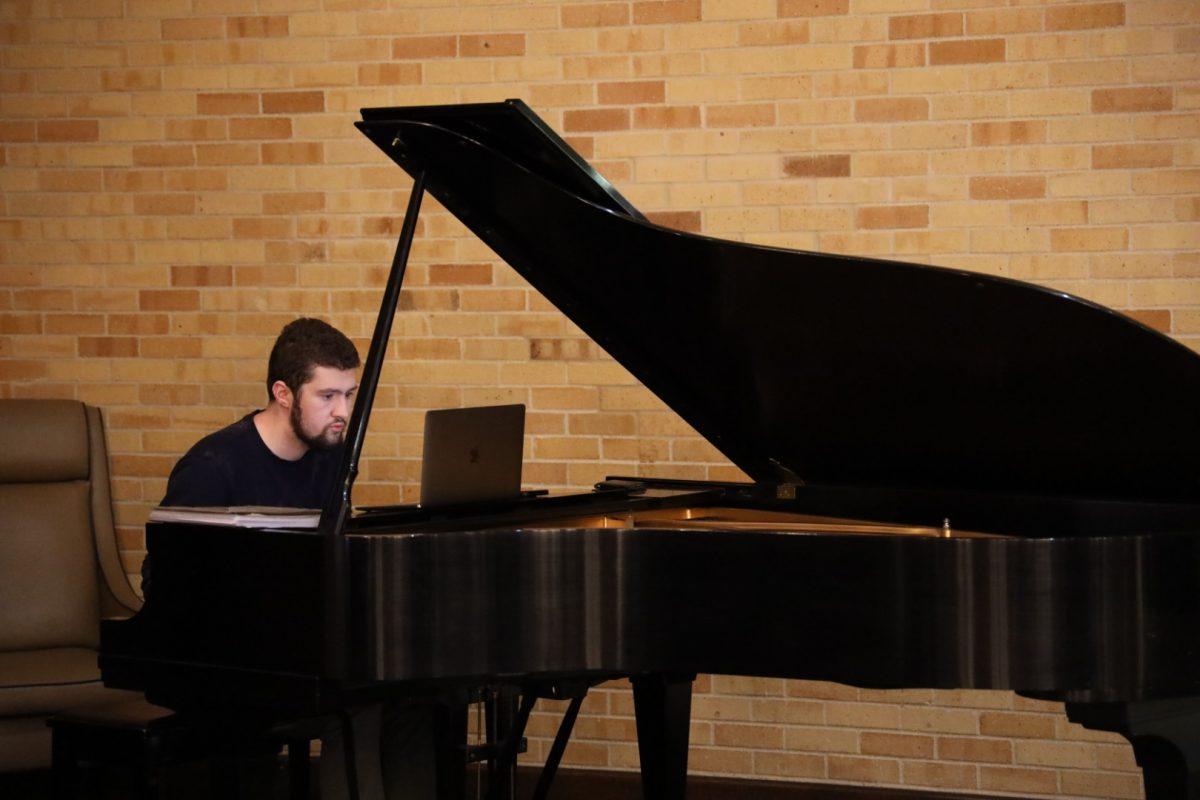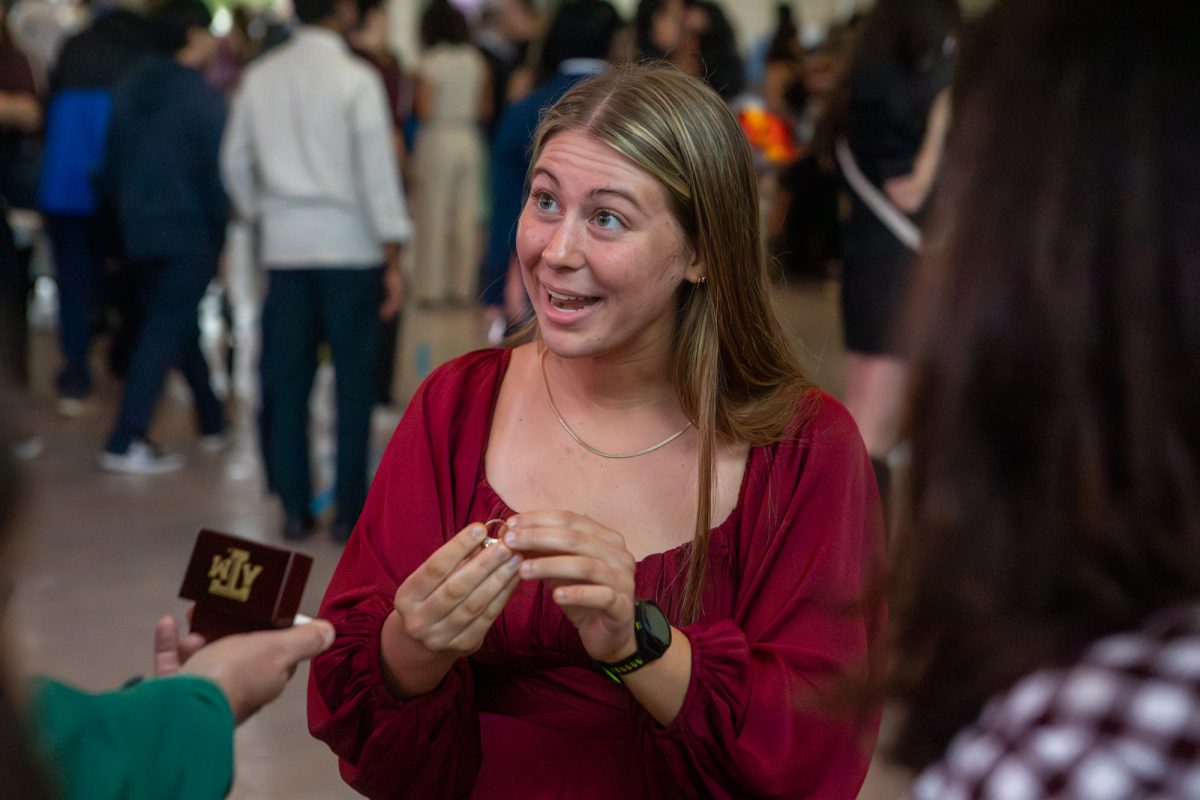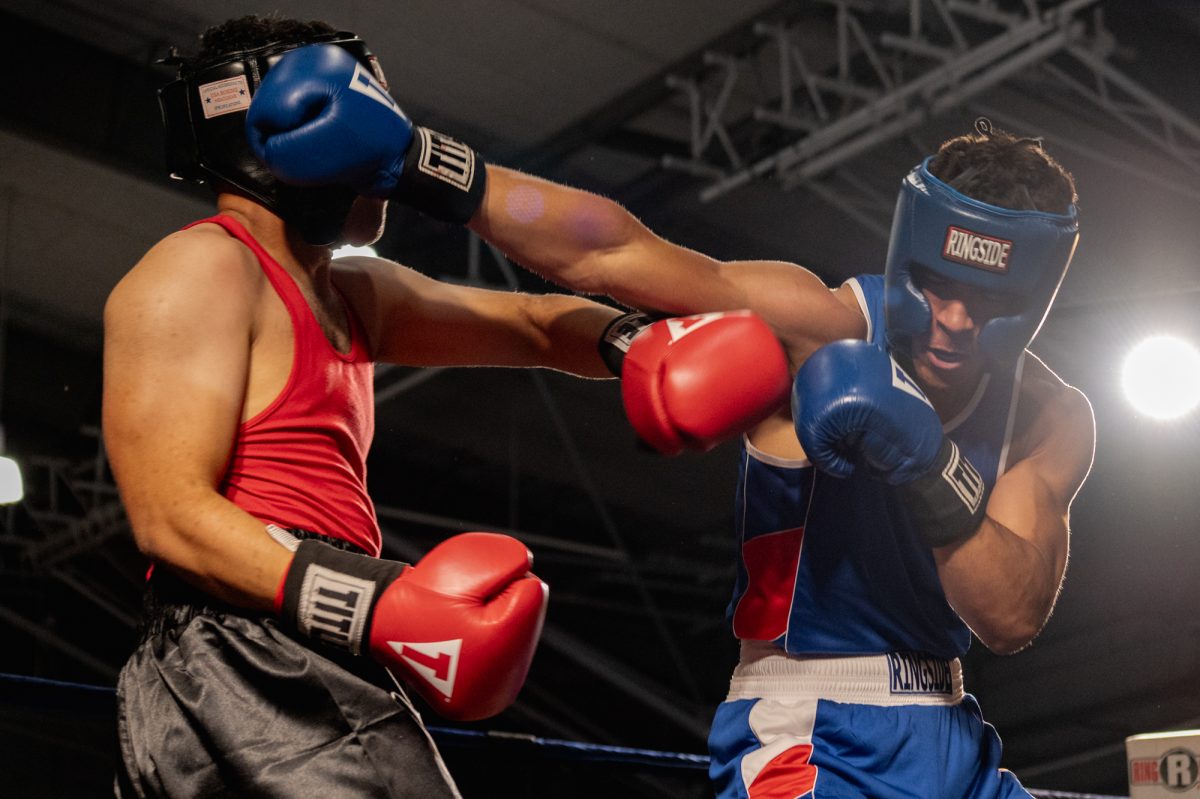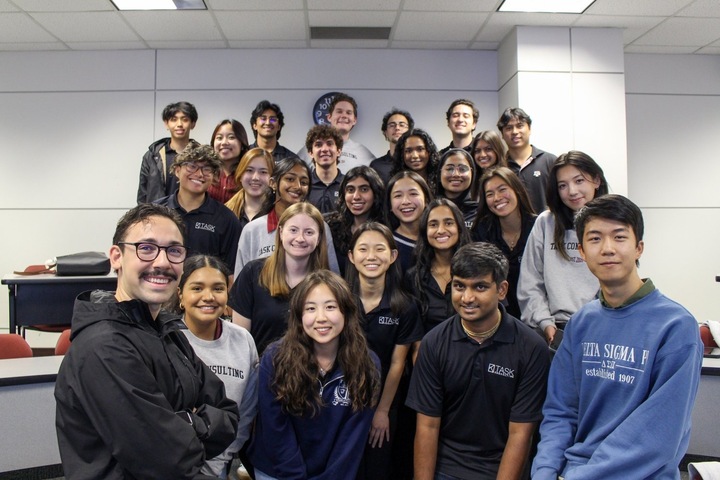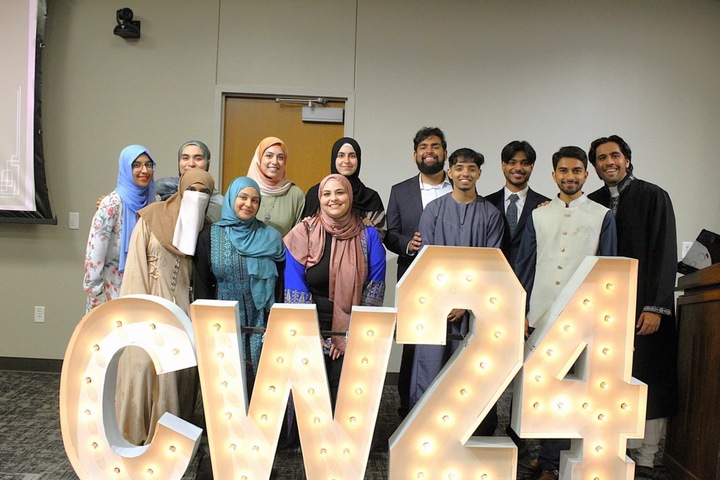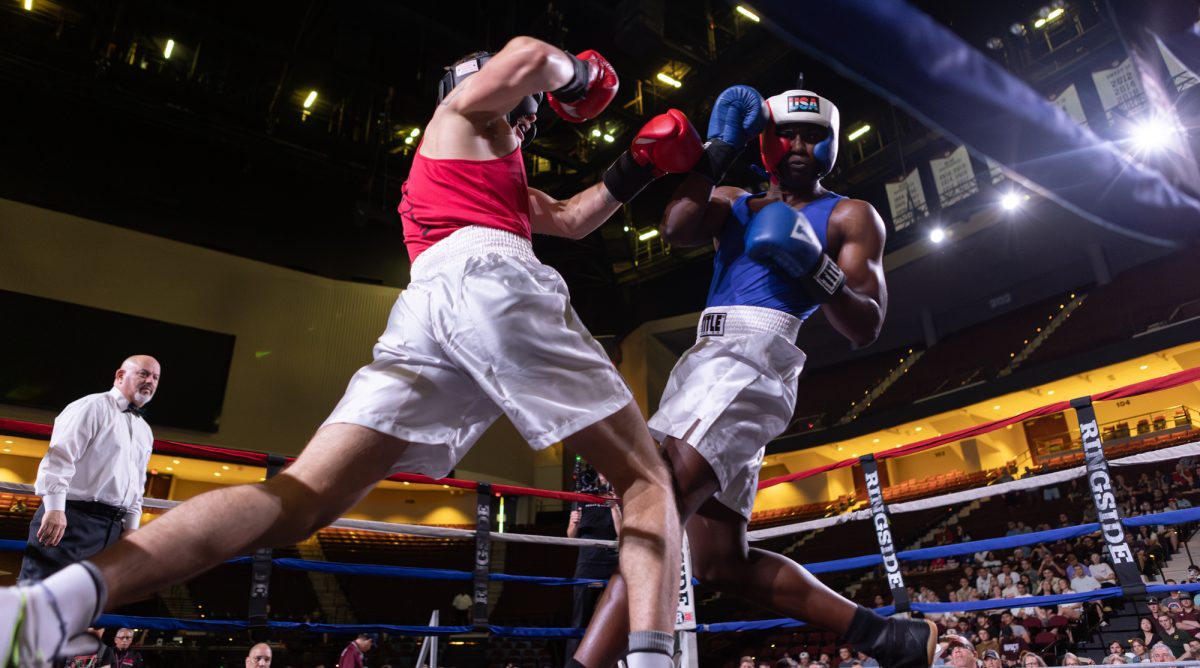Aggies are familiar with the mood of the Memorial Student Center, or MSC, Flag Room. It’s reminiscent of Starbucks plastic cups dripping with condensation, students holding their heads from the migraine of college life and the giant globe that solemnly sits on its axis. There is usually at least one klutzy student that is too loud for the flag room, or maybe you are the annoying student with no headphone insulation. The MSC’s Flag Room is a delicate ecosystem sensitive to many loud sounds except for one: the piano.
Often, we hear the music in the MSC’s Flag Room, but ignore the musician behind it. It’s easy not to notice the sugary love of the piano, much less the musician behind the cheery and brisk arpeggios. After all, the piano seamlessly blends into the background of computer screens and squeaky highlighters.
Mathematical and aerospace engineering junior Nicholas Siodlarz is one such hidden musician, and said performing in the room is a special experience..
“Just from a musical standpoint, the acoustics in this room [is] absolutely superb,” Siodlarz said. “You get a real concert hall vibe here.”
Siodlarz gestured toward the glossy “top of the line” instrument, a Steinway piano, the Gucci of keynotes, and said it was a great chance to play a beautiful instrument.
“Obviously, you don’t get the opportunity to play on a Steinway all the time,” Siodlarz said.
Upon first glance, Siodlarz is a musician who plays every note with poetic beauty, weaving instinctively through the humming octaves of the piano like a musical storyteller. He shrugged when asked what piece of Beethoven this was, “it was all improv.”
Being a long-time player, Siodlarz said people often do that on the piano, even at the MSC. Siodlarz subconsciously understands each keynote’s intricate melodies, delicate tones and what sounds good.
“I migrated away from the sheet because you can focus more on the tone,” Siodlarz said. “Then, once you start focusing [and] get your mind into the music, stage fright goes away.”
As a student riddled with the technicality of aerospace engineering, Siodlarz said he looks forward to flipping integrals and derivatives into music notes.
Unlike STEM, where Siodlarz uses technical methods to find unknown pieces, he enjoys playing the piano differently. Siodlarz said he enjoys playing the piano by not adhering to traditional, pre-programmed Bach or Beethoven duplications nor following a composer’s every whim. In other words, by improvising his own music, Siodlarz is creating his own pieces of the puzzle.
“That’s part of why I like to play [the piano] because you get a bit of an escape,” Siodlarz said.
In the early hours of a Thursday morning, communications sophomore Grayson Phillips grazed the piano nonchalantly like a lullaby to the theme song of “La La Land”. Only having played for a year, Phillips said he thinks of playing just as an art — far less nuanced and deep than non-musicians like myself perceive. Simply, it is just a player and a piano.
“I like the finer things and learning about culture,” Phillips said. “I like music and it’s just nice to play.”
The music hummed on, echoing into the room and capturing the essence of a sleepy morning. While some early-bird pianists chirp in the early morning hours, night owls and pianists bellow briskly during the later hours.
Computer science graduate student Bassel Toubbeh played with poise and pep on a Wednesday evening. Since working full-time and becoming a graduate student, he said he does not play as much as he used to as an undergrad.
“I’ve been playing for 19 years on the piano,” Toubbeh said. “My dad was in a band growing up, so he has a super musical ear. Anytime I play a song, he’s like, ‘Oh, try this chord instead’ or, ‘Hey, you’re missing a note,’ and we’ll debate about it. Sometimes he’s right, and sometimes he’s wrong and I love it. So I just grew up in a musical household.”
While his passion and career are focused on computer science, Toubbeh said that art and computers are not mutually exclusive and there is a science behind the art. He pointed toward the brittle circuitry full of dusty, ancient strings inside the piano.
“There’s so much that goes into playing piano … you can twist and make modifications to make [the piano] sound good. It’s all just patterns,” Toubbeh said.
Oddly enough, Toubbeh said he dislikes classical music. His musical taste leads back to the era of leg warmers, mullets and classical rock.
“It’s [not just] letting stuff out on the piano but also enjoying [the] music itself,” Toubbeh said.
With the daily college nuances of fervently typing articles before deadlines or cramming before a big exam, it’s a pleasure having the old artistry of the Weisner piano and the players behind it. For listeners, it is a simple thing to enjoy. As we grow older and start to see a more realistic and nuanced look at everyday life, the MSC Flag Room is a small slice of tranquility on a bustling campus.
“I love the environment here,” Toubbeh said. “It’s peaceful and quiet, and I love taking requests.”
So, the next time you visit the MSC flagroom, acknowledge the student behind the piano, even if your notes are sour. Even the simplest things, like a smile, can help the blues of student life be a bit more tolerable. And if you want to hear some Taylor Swift on the piano, just ask, chances are, piano players are Swifties too.
To put it more simply, Toubbeh gazed back at the instrument with fingers itching to play again. “I mean, it’s just a beautiful piano.”



